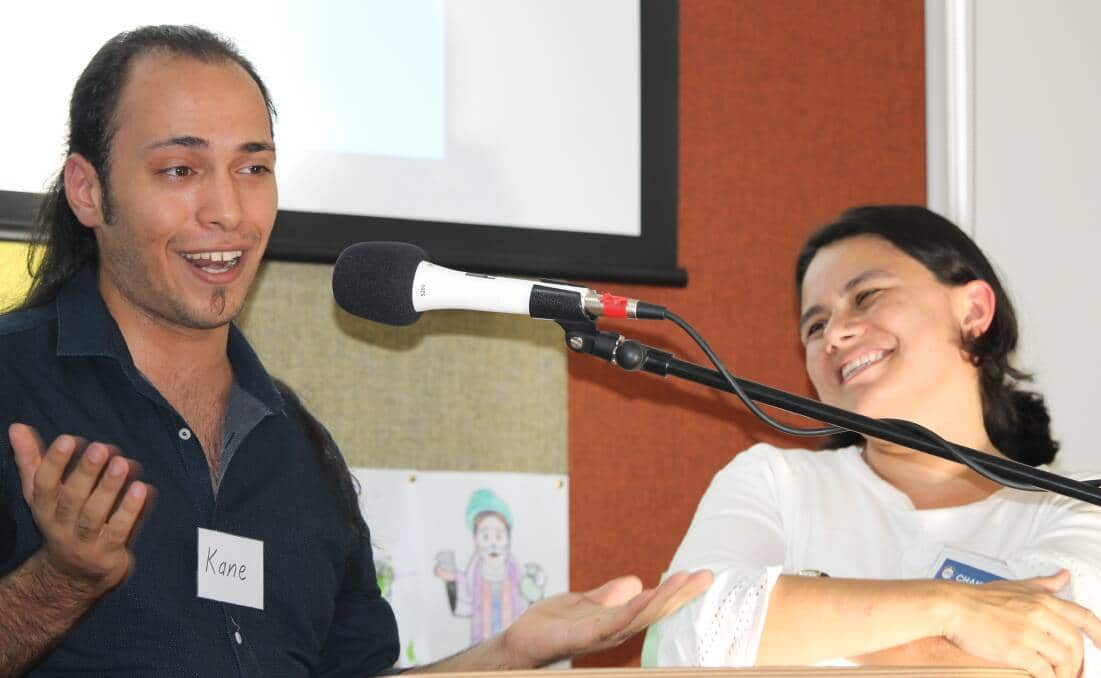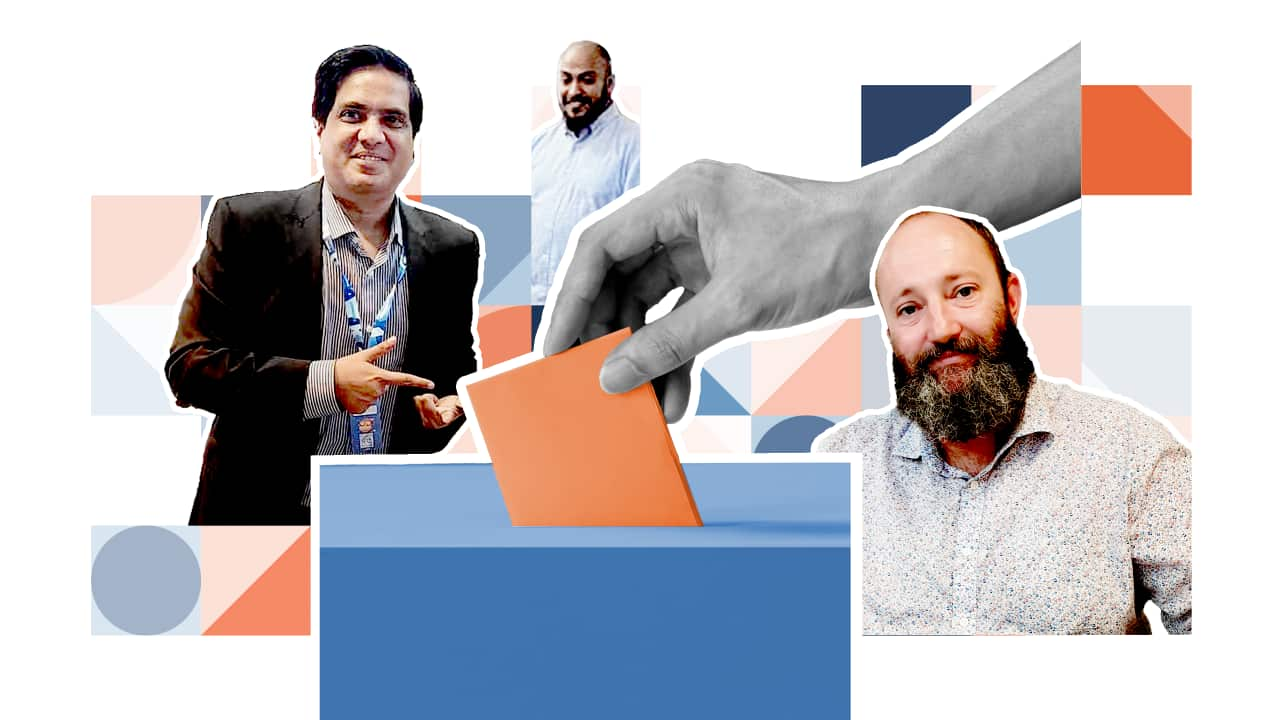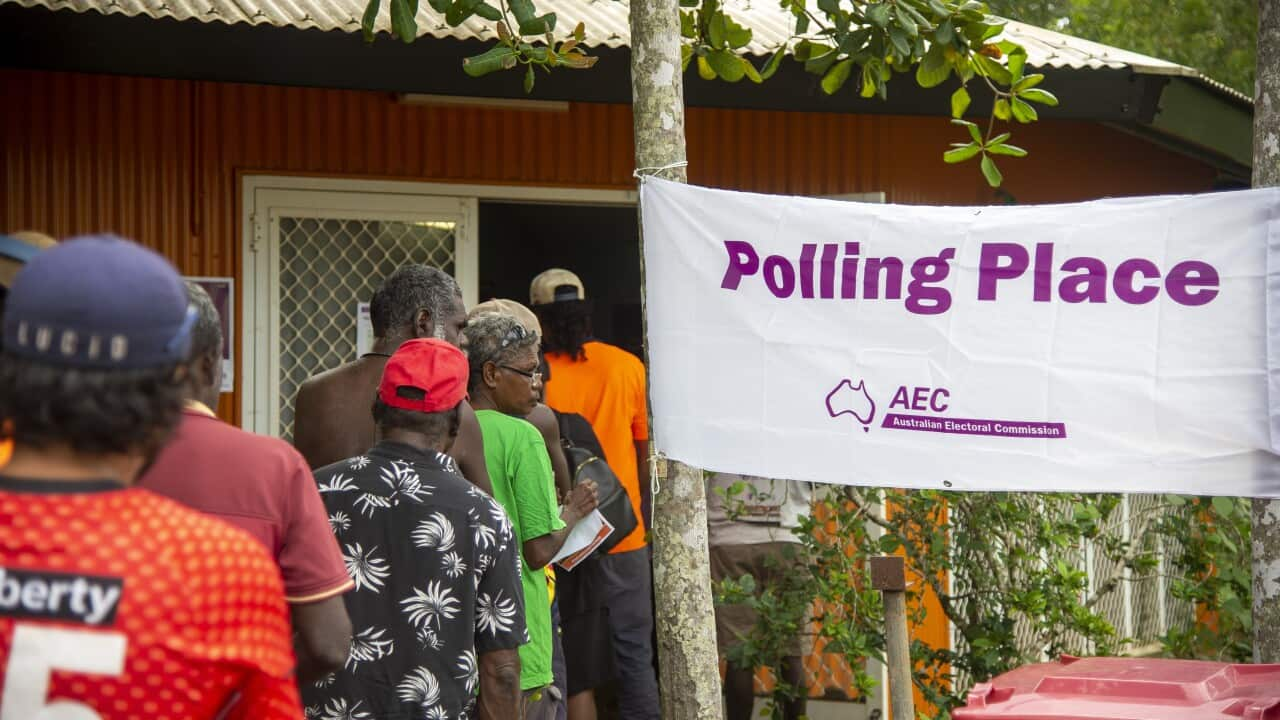Key Points
- Community leaders and youth workers are providing information and support to first-time voters.
- Some say more civic education is needed about the importance of voting.
- Australia's bicameral system and unwieldy Senate ballot paper are common causes of confusion among new voters, they say.
The Pakistan Youth Association Inc is assisting first-time voters in the lead-up to Saturday's Federal Election.
With a Facebook and WhatsApp presence of around 77,000 followers, the group provides a forum for election questions in English and Urdu, which are then answered often by second and third-time voters.
The social media presence morphed out of a Facebook group community member Aqeel Shah established in 2008 to assist newly arrived students and migrants with accommodation, jobs and even airport pick-ups.
While there was "some confusion" among first-time voters this election, there was also excitement, he said.
"A lot of questions are about the white Senate ballot paper and how to number that, above or below the line, etc," Shah said.
"We also make sure people understand not to cross boxes as this would render their votes informal and therefore not counted."

Aqeel Shah has been providing information and support to the Urdu-speaking community since he arrived in Australia as a student. Credit: Aqeel Shah
"I was really excited to vote in elections, coming from Pakistan where voting is not mandatory," he said.
"I see that same excitement in the first-time voters we are assisting. People are happy to take part in a 'clean' electoral system where there is no pressure to vote a certain way."
More than 700,000 Australians will be voting for the first time in this federal election, many of them having reached the voting age of 18 or become Australian citizens since the last poll in 2022.
"One aspect (which) is important for people to understand, and perhaps difficult for people who are new to it, is the preferential voting system. We do a lot of work to explain exactly how it works for both the House of Representatives and the Senate," Australian Electoral Commission (AEC) spokesperson Evan Ekin-Smyth said.
"The AEC’s extensive translations and interpreting services are an important way to ensure people with low English proficiency can access information on the electoral process.
The AEC produce information, advertising, and videos in up to 34 languages and has 19 dedicated phone numbers for access to translation services.
More civic education needed
Mukhllad (Kane) Alkoraghooli, a youth worker in Western Sydney, said as a second-time voter himself, he had been helping first-time voters with election queries.
Arriving in Australia as a refugee from Syria in 2015 and becoming an Australian citizen in 2021, he voted in the 2022 federal election.
He said friends, family and community members were "a little confused" about Australia's preferential voting system as well as the bicameral system of voting for candidates in both the Senate and House of Representatives.
The way I explain the preferential system to people is that if their first choice is not successful, their vote is not wasted.Kane Alkoraghooli
The Western Sydney Community Legal Centre worker said there should be more civic education in Australia about the rights and responsibilities around voting.
He said migrants and refugees eligible to vote were generally "excited" about voting in the upcoming race.
"They may not have experienced free and fair elections in their home countries, so they are excited to have the opportunity to participate in civic life," he said.

Kane Alkoraghooli (left) is a youth worker and speaker at community forums. Credit: Mukhllad Alkoraghooli
Yazidi, Hazara communities working for AEC
Thom Paton works as a community development officer for the Multicultural Council of Wagga Wagga.
He said former refugees from the Yazidi and Hazara communities, based in the NSW town, were working as AEC officers to assist first-time voters at polling booths this year.
"Initially, these community members were engaged by the Australian Bureau of Statistics (ABS) to assist with the 2021 Census and after fulfilling this role registered with the AEC to support elections at a local level."

Thom Paton from the Multicultural Council of Wagga Wagga is circulating AEC material among the council's clients. Credit: Thom Paton
"Our core clientele are individuals and families who have arrived in Australia on refugee and humanitarian visas, including the Yazidi community from Iraq, multiple ethnic communities from Myanmar, Tibetan community, the Afghan Hazara community, the South Sudanese community and the Burundian community," Paton said.
To help first-time voters navigate Australia's electoral system, Paton said he had been circulating resources provided by the AEC, including some translated resources which, in turn, community leaders have been circulating within their communities.

